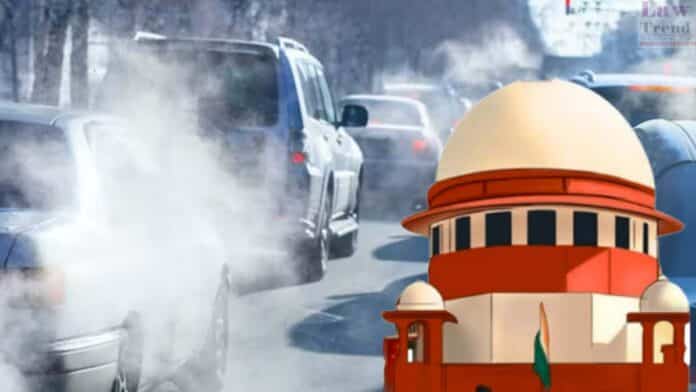Don’t try to non-perform and shift the burden onto the court, the Supreme Court told the Delhi government on Friday, making clear that the decision on introducing the odd-even car rationing scheme in the national capital has to be taken by the city government and the court will not issue any direction on it.
While hearing a matter on the worsening air quality in the Delhi-National Capital Region, a bench headed by Justice Sanjay Kishan Kaul said the court had nothing to do with the odd-even scheme and it had never said that it should also apply to taxis entering Delhi from the adjoining states.
The Delhi government had earlier announced it will implement the odd-even scheme a day after Diwali from November 13 to 20, when air pollution is likely to peak.

During the hearing on debilitating air pollution in Delhi-NCR on November 7, the apex court had questioned the effectiveness of the scheme following which the city’s Environment Minister Gopal Rai said it will be implemented only after the apex court has heard the matter on Friday and issued an order.
The top court is seized of a plea filed in 1985 by environmentalist M C Mehta on air pollution. Several issues concerning pollution have arisen during the hearing of Mehta’s petition.
On Friday, the apex court said it had flagged the odd-even issue at the last hearing after an advocate, assisting it as an amicus curiae, said the odd-even plan does not actually help reduce air pollution.
The counsel representing the Delhi government said taxis from adjoining states were required to be allowed into Delhi as commuting will become a major problem otherwise. Lakhs of people working in Delhi live in cities like Noida and Gurugram in Uttar Pradesh and Haryana.
“I am agreeing with you. We never said that. Don’t try to non-perform and shift the burden onto the court. This is what is happening,” Justice Kaul observed.
“All we flagged was an issue that the amicus was saying that really this odd-even does not help. It has not proved to help. But you say now, we will implement odd-even and also implement odd-even on taxis. Did we ask you to implement odd-even on taxis? We did not ask you to implement it,” the bench said.
The counsel argued that the odd-even plan may not have very large mitigating effect on pollution, but even if it has a small impact, it will count.
The lawyer said one of the major causes of pollution, as observed in studies, was traffic congestion on roads and odd-even helps decongest them.
“What you have to do, you have to do. We are not here to tell you what to do,” the bench told the lawyer.
“You have to take a call tomorrow, you will say we told you to continue, not to continue and therefore, the pollution is because the Supreme Court has passed an order,” it said.
Also Read
The Delhi government’s counsel said the state was in a fire-fighting mode and the situation was really bad.
“On the lighter side, what the population has to do is to pray only,” Justice Kaul said, adding, sometimes rains come and that helps. He was referring to intermittent rain in Delhi and its satellite cities which brought down air pollution levels today.
The Delhi government’s counsel told the court a large number of older diesel vehicles have been banned due to rising air pollution.
Introduced in 2016, the odd-even car rationing scheme permits cars to operate on alternate days based on their odd or even number plates. The enforcement next week, if done, would mark the fourth time that the Delhi government will implement this scheme to tackle pollution caused by vehicles.
According to a 2018 study conducted by The Energy and Resources Institute, vehicular emissions contribute roughly 40 per cent to the (particulate matter) PM 2.5 pollution in the capital.







